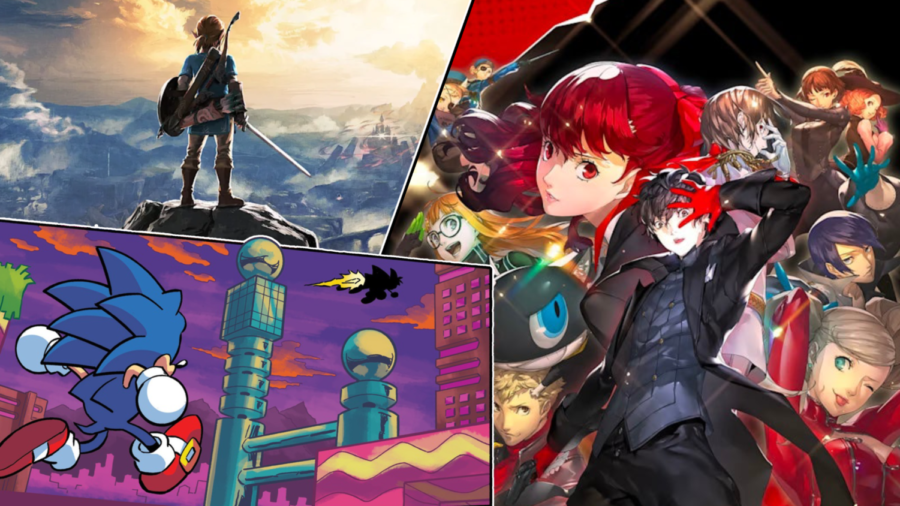Opinion: The power of games as a storytelling medium
Interactive storytelling. That is the strength of the narratives that only video games can tell seamlessly. While movies and shows have strengths of their own, very little allows you to make your own impact and choices quite like a game. Video games have become a powerful tool for storytelling, allowing players to choose their own path and immerse themselves in a fictional world. Yet, despite this, games often find themselves with a stigma attached when it comes to their stories, whether it be due to the story “not being significant,” with gameplay outshining it, or the fact that developing games can be niche — a territory that many don’t want to venture into.
Of course, when it comes to video games, gameplay should be of utmost priority. Without fun gameplay, there is no motivation to hear the story. That being said, many downplay the importance that a story could have within a game. A good narrative can help push a player forward in the game, motivating them to help characters or defeat the antagonist causing all the trouble. This can be seen all the way back in the 80s with games such as the original “Super Mario Bros” for the 8-bit Nintendo Entertainment System. With every castle Mario conquers, a toad will tell him that the princess is in another castle. As simplistic as this seems, it provides a narrative reason to keep on pushing through, helping the intrinsic motivation of fun gameplay to keep the player playing.
More importantly, we’ve yet to cover interactivity. Due to the inherent interactive nature of video games, many let your choices affect the trajectory of the narrative, providing for different endings or story routes. For example, 1993’s “Sonic The Hedgehog CD” featured time travel as its primary gimmick, and within each level, you could travel to the past or future. Yet, in the past, there were robot generators to destroy, and destroying them determined whether the level you were in would have a good or bad future. Failing to destroy the generator gave a bleak, polluted future, while succeeding gave a utopian future where technology and nature exist in harmony. Through gameplay, the game lets you determine the fate of the setting “Little Planet,” and whether you let it fall to ruin or to help create a better timeline.
Characters play an important role in stories, too, and yet again, the interactivity of video games finds success here. Take the titular “Persona” series and its emphasis on the bonds between people. The latest three Persona games feature Social Links (or Confidants, in the case of Persona 5), where the protagonist can spend time with party members and other side characters, helping build up those characters by allowing the player to listen to the struggles of other characters and help them through it. Through being able to interact with these characters, the games can bring fiction to life. They give the characters life-like struggles and motivations, which lets the player better connect with the stories they delve into.
And then, the world. It’s one thing to watch a world through a screen, or read descriptors of it within a book, but with video games, you’re able to control how you interact with the world. Through games, you are better able to immerse yourself in the massive worlds that games can present, especially open-world ones.
“The Legend of Zelda: Breath of the Wild” provides a perfect example of how video games can immerse players in their expansive worlds. In “Breath of the Wild,” the game introduces you to “The Great Plateau,” a tutorial zone to explore. Upon completing all the required quests in the area, suddenly, the game opens up exponentially, allowing the player and Link, the main protagonist of “The Legend of Zelda” series, to explore the entirety of Hyrule. You can talk to NPCs, check every nook and cranny and soak in the beauty of the landscapes you find yourself traversing. Through this appreciation of the land the game lets you explore, the player is better motivated to protect its beauty from the antagonist, Calamity Ganon.
Video games, as a medium, have so much more value for storytelling than they’re given credit for. Through its interactivity and immersion, a game is able to provide experiences that are impossible to replicate through other means such as books or film. They certainly can be more expensive and difficult to develop, but when done right, video games can make you feel like you’re living within the story.

Senior Alexander Cha is a reporter and this is his third year on staff. His favorite subject is English and his hobbies include writing stories and playing...














Brody • Sep 29, 2022 at 8:34 AM
Amazing story!